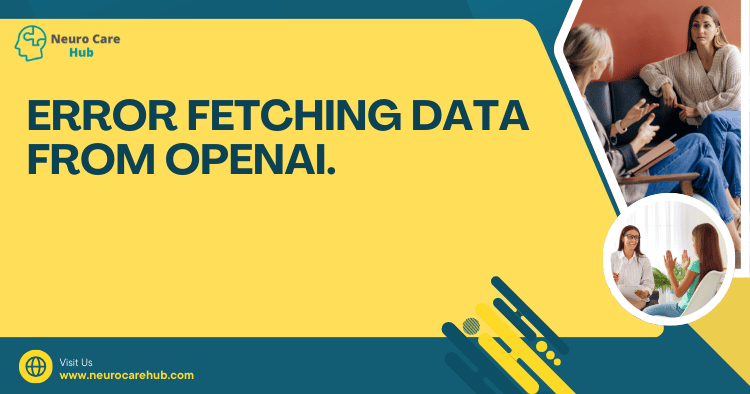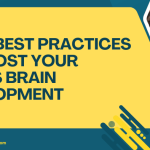Table of Contents
- Introduction
- The Brain: A Nutritional Powerhouse
- Essential Nutrients for Brain Development
- The Role of Nutrition in Different Life Stages
- How Poor Nutrition Affects Brain Health
- Practical Tips for a Brain-Boosting Diet
- Conclusion
- FAQs
Introduction
Nutrition is often discussed in the context of physical health, but its role in brain growth and function is equally critical. The brain, an organ that governs our thoughts, emotions, and actions, requires a variety of nutrients to develop properly and maintain optimal function. This article delves into how nutrition impacts brain growth, the essential nutrients involved, and practical tips for a brain-boosting diet.
“Nutrition is not just about eating; it’s about learning to live.” — Unknown
The Brain: A Nutritional Powerhouse
The human brain is a complex structure made up of approximately 60% fat, with a significant portion being omega-3 fatty acids. It consumes about 20% of the body’s energy, despite representing only about 2% of total body weight. This high demand for energy and nutrients underscores the importance of a balanced diet rich in essential nutrients for brain development and function.
“The brain is like a muscle. When it is in use, we feel very good. It is when it is used least that we become grey.” — Marilyn vos Savant
Essential Nutrients for Brain Development
Omega-3 Fatty Acids
Omega-3 fatty acids, particularly DHA (docosahexaenoic acid), are crucial for brain growth and function. They contribute to the structure of brain cells and support cognitive functions such as memory and learning.
- Sources: Fatty fish (like salmon and sardines), flaxseeds, walnuts, and chia seeds.
- Research: Studies show that diets rich in omega-3s can improve brain health and reduce the risk of cognitive decline.
Vitamins and Minerals
Various vitamins and minerals play pivotal roles in brain health. For instance:
- Vitamin B12 helps in the formation of red blood cells and maintains neurological function.
- Vitamin D is linked to cognitive abilities and mood regulation.
- Iron is essential for oxygen transport to the brain.
| Nutrient | Role in Brain Health | Sources |
|---|---|---|
| Vitamin B12 | Nerve function and red blood cell formation | Meat, fish, dairy, eggs |
| Vitamin D | Mood regulation and cognitive function | Sunlight, fatty fish |
| Iron | Oxygen transport to the brain | Red meat, beans, spinach |
“Let food be thy medicine, and medicine be thy food.” — Hippocrates
Proteins and Amino Acids
Proteins are the building blocks of neurotransmitters, the chemicals that transmit signals in the brain. Amino acids such as tryptophan and tyrosine are precursors to serotonin and dopamine, respectively, which are crucial for mood regulation.
- Sources: Lean meats, dairy products, legumes, and nuts.
The Role of Nutrition in Different Life Stages
Infancy and Early Childhood
During the first few years of life, the brain undergoes rapid growth. Adequate nutrition is vital for cognitive development. Breast milk provides essential fatty acids and nutrients, while a balanced diet introduces critical vitamins and minerals.
“Nutrition during the early years of life is critical. The brain is developing at an incredible pace, and the right nutrients can make all the difference.” — Expert Opinion
Adolescence
Adolescents experience significant brain maturation, particularly in areas responsible for decision-making and impulse control. Nutrition during this period can influence academic performance and mental health.
Adulthood
In adulthood, maintaining a balanced diet helps preserve cognitive function and reduce the risk of neurodegenerative diseases. Eating a variety of nutrient-dense foods can support long-term brain health.
How Poor Nutrition Affects Brain Health
A diet lacking in essential nutrients can lead to cognitive deficits, mood disorders, and even developmental delays in children. For example, deficiencies in omega-3 fatty acids and B vitamins have been linked to increased risk of depression and anxiety.
Moreover, excessive consumption of processed foods and sugars can lead to inflammation, which negatively impacts brain health.
“Your diet is a bank account. Good food choices are good investments.” — Bethenny Frankel
Practical Tips for a Brain-Boosting Diet
- Incorporate Fatty Fish: Aim for at least two servings of fatty fish per week, as highlighted in Top 5 Foods to Enhance Your Brain Health Naturally.
- Eat a Rainbow: Include a variety of fruits and vegetables to ensure a broad spectrum of nutrients.
- Limit Processed Foods: Reduce intake of sugars and unhealthy fats, as discussed in Top 5 Lifestyle Changes for Better Neuro Health.
- Stay Hydrated: Water is crucial for maintaining optimal brain function.
- Consider Supplements: If you struggle to get enough nutrients, consult a healthcare provider about supplements.
Conclusion
Nutrition plays a pivotal role in brain growth and function. By understanding the essential nutrients that support our cognitive health, we can make informed dietary choices that foster optimal brain development at every stage of life. Prioritizing a balanced, nutrient-rich diet is not just beneficial for the body but is equally vital for maintaining a healthy, thriving brain.
“Eating well is a form of self-respect.” — Unknown
FAQs
Q: What are the best foods for brain health?
A: Foods rich in omega-3 fatty acids (like salmon), antioxidants (berries), and whole grains are excellent for brain health.
Q: Can poor nutrition cause cognitive decline?
A: Yes, a diet lacking essential nutrients can lead to cognitive deficits and increase the risk of conditions like dementia.
Q: How much water should I drink for optimal brain function?
A: A general guideline is to aim for 8-10 glasses of water per day, but individual needs may vary based on activity level and climate.
Q: Are there any foods I should avoid for better brain health?
A: Yes, limit processed foods, excessive sugars, and unhealthy fats, as they can lead to inflammation and negatively impact cognitive function.
For more information on nutrition and brain health, check out the World Health Organization’s guidelines. Also, explore insights on the importance of regular neuro check-ups in Top 5 Benefits of Regular Neuro Check-Ups for Your Health to understand the integral connection between nutrition and overall brain health.






